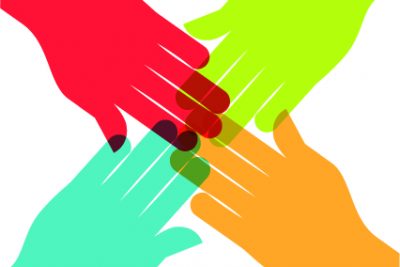This article was submitted by a parent that receives services from the Department of Services for the Blind (DSB) to share her experiences with other parents.
Check out DSV’s website by cliking here
By Emily Coleman
My son, Eddie, was born 10 ½ years ago with Optic Nerve Hypoplasia. I learned quickly that I needed caring professionals to surround us and help us determine the best way to educate our son. I realized that without people who really knew blindness in our lives, we would be at a loss. From the beginning of his life, collaboration became not only important, but a lifeline. It also inspired me to get further involved in the field of blindness as an educator.
For the past few years, I’ve been working as a Teacher of the Visually Impaired (TVI) in Eastern Washington through the WA State School for the Blind’s Outreach program. While working in multiple districts, I was able to collaborate closely with students, parents, and a variety of educators. As a parent of a child who is blind, I learned quickly that everyone brought something unique to the “table” when discussing Eddie. As a TVI, I learned that was true for all children who are blind/visually impaired (B/VI).
Last spring, I moved into the position of Outreach Director at the WA State School for the Blind (WSSB) and WA State Vision Consultant with WA Sensory Disability Services (WSDS). In this new role, I’ve been able to take collaboration to a whole new level. I’ve had the opportunity to work outside of my family, and my region, and learn from professionals around the state. It’s been a fast-paced adventure that I’ve enjoyed every day.
When I agreed to take this new position, I had to really think about the role WSSB and WSDS play and how I can best serve their missions and the students who are B/VI in our state. I obviously don’t know everything in regards to educating children who are blind…and I never will. As a parent, and as a teacher, I sought out the expertise of others and guidance through collaboration. This drive to collaborate to best serve kids is also shared by WSSB and WSDS, and so I knew that we were on the same page.
WSSB provides support to students via an on-campus program, but also supports students regionally via technology consultation, distant-education courses, online resources, professional development, contracted services, and more…including assistance with birth-through-3 services statewide. WSDS provides many of those same things, but also works in collaboration with the Deaf-Blind Project, Center for Childhood Deafness and Hearing Loss http://www.cdhl.wa.gov, WSSB, and other agencies, including DSB.
The combined knowledge and experience in WA State is substantial, and collaborating is an effective way to serve kids and move them towards greater independence. I invite you to reach out to me as a parent, educator, or consultant if you have questions or concerns regarding your own child or a student who is B/VI. Whenever possible, I’ll be a gateway to other professionals and further expertise, through the act of collaboration.
Emily Coleman
emily.coleman@wssb.wa.gov

